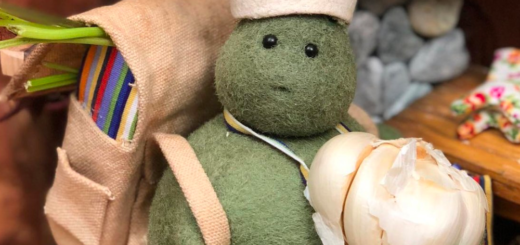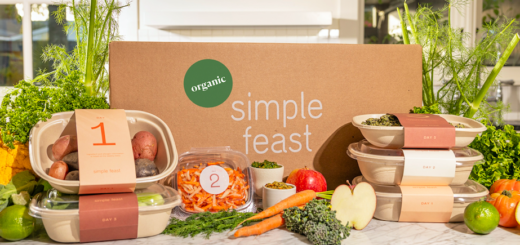The World’s Biggest Companies Are Getting on Board with Animal-Free Meat

Besides being one of my personal heroes, Bruce Friedrich is a man who’s in the know.
As founder and Executive Director of the Good Food Institute (GFI) — non-profit that works to promote cultivated meat (meat grown directly from animal cells) and plant-based alternatives to animal products — he’s an expert in all things food — particularly when it comes to building a sustainable food future, something all humans need to be tasked with.
In Bruce’s four-and-a-half years at the helm of GFI, the world’s attitude towards plant-based food has changed dramatically, with some of the biggest brands in the world getting on board — and much of the credit is due to the tireless commitment of the GFI crew.
In a relatively short window of time GFI has helped companies raise millions of dollars to develop groundbreaking plant meats and cultivated meats. They’ve expanded into India, Israel, Brazil, Asia Pacific, and Europe. They’ve educated powerful institutions all over the world on the power of these foods to combat climate change and feed a growing population. The list of their accomplishments seems endless.
Whether you’re new to the plant-based food world or you’ve been paying attention since the very beginning, GFI is an organization to watch (and support!) — because can’t we all agree that creating a delicious, affordable, just and sustainable food system is the major win this world needs?!
I spoke with Bruce to get his insider perspective on all the amazing things that have been happening in the plant-based and cultivated meat world.
When I asked him what changes he’s witnessed in the food system since he started with GFI at the end of 2015, his list was pretty incredible.
Back then, he reported, only one cultivated meat company — Memphis Meats — had even fundraised. Two others (Mosa Meat and SuperMeat) existed but hadn’t started raising money. All told, cultivated meat companies had raised less than $150,000. Now, they’ve raised more than $300 million.
CHA-CHING.
Five years ago, plant-based products did exist, but they represented less than 0.25% of the meat market. And “there were no products that meat eaters thought tasted as good as conventional animal meat,” Bruce explains. “Impossible Foods existed but was still more than a year away from launching its first product, and Beyond Meat had two products — chicken and the Beast Burger — that it no longer sells because they were very much Generation 1.0. Five years ago, no conventional meat company had released a plant-based meat product or invested in a cultivated meat company.”
Fast forward to now, and two of the largest meat companies in the world — Tyson and Cargill — have invested in cultivated meat companies, and most of the biggest meat companies in the world are launching their own lines of plant-based meat. Beyond Meat and Impossible burgers are EVERYWHERE, from Burger King to the meat aisles at grocery stores. Plant-based is clearly no longer niche.
“There is still a long way to go on both the plant-based meat and the cultivated meat sides,” says Bruce. “There are scientific questions, there are infrastructure hurdles. But what’s happened in the last five years has been remarkable and certainly bodes well for the future.”
As far as what the future does hold, Bruce thinks the plant-based meat companies will continue to grow, particularly with the participation of legacy meat and food companies, as well as government investment and support.
“I think we will see some of the plant-based meat companies that have been around for a little bit longer releasing products that meat-eaters are excited about, and I think we will see more and more development from the conventional food and meat companies, like Nestle, ADM, Tyson, Cargill, Smithfield, and Purdue,” says Bruce.
GFI will be focused on working globally to get this stuff on government agendas. “The focus will be on securing government investment in plant-based and cultivated meat research and development to allow for biomimicry of all animal-based products,” Bruce explains.
One thing that’s obvious to anyone who leaves their house (or at least watches streaming TV) is the fact that plant-based meats are common mainstream subject matter these days — a fact that wasn’t true just a few years back. Meat eaters are chowing down on plant meats in record numbers, and that’s clearly a new phenomenon.
“Certainly five years ago people would have just talked about veggie burgers (as opposed to making meat from plants) and no one would have known what cultivated meat is,” says Bruce of the shift. “Previously, folks had been thinking that the market sector for plant-based meat was reducetarians, flexitarians, vegetarians, and vegans, and the products could cost a little bit more and didn’t have to really nail the taste. But then Pat Brown from Impossible Foods, Ethan Brown from Beyond Meat, Josh Tetrick from Just, and, subsequently, Uma Valeti from Memphis Meats, Mark Post from Mosa Meat, and the rest of the cultivated meat companies started to recognize that if we could give consumers everything they like about meat — the taste, the texture, and the price — we could have significant market share in the same way that plant-based milks have.”
And consumers are eating it up. Literally!
Best of all, more and more products will continue to hit store shelves in the coming years — every animal product imaginable is on its way.
Bruce also mentioned that there are two lesser-known options as far as alternative proteins that prove pretty fascinating: products derived from microorganisms, and plant-based and cultivated seafood.
“Products made from mycoproteins and other single-cell organisms are really versatile in terms of the textures and flavors they can take on, as well as being even less resource-intensive than plant-based products,” says Bruce.
“Plant-based and cultivated seafood is another really exciting advancement. Conventional seafood practices are destroying our oceans’ fragile ecosystems while global demand for these products is only growing.”
Pretty soon we won’t need to drag fish out of the ocean — and we’ll have meat made from single-celled organisms. How cool is that?
Companies utilizing microorganisms include Perfect Day (dairy protein without cows), Clara Food (eggs without hens) and Geltor (gelatin without animal parts) — so keep an eye on them as these products start to become available to consumers.
As far as seafood, there are companies like BlueNalu and Good Catch who are hard at work — and several of Good Catch’s products are already available in stores. BlueNalu recently created a created whole-muscle portions of yellowtail fish filet that can be eaten raw, heated directly, steamed, fried, or marinated.
Just think: before too long you’ll be able to sit down to a meal of fresh tuna sashimi or a medium-rare filet. It’ll look, taste and smell the same — but no hormones, no antibiotics, no death.
So when are cultivated meat and seafood coming to market? According to a rep with the Good Food Institute, “cultivated meat may be available in very limited terms in high-end restaurants (e.g. a pasta dish with cultivated meatballs) within a year or two.” As far as widespread availability to the consumer, it’s likely to be around five years beyond that.
Clearly things are changing — and faster than anyone could have predicted. The future looks damn bright, doesn’t it?
(Special thanks to Bruce Friedrich for taking the time out of his busy schedule to do this interview! If you haven’t seen it, his recent TED Talk is all kinds of amazing. Check it out here.)
Follow harm.less on Instagram, Twitter, and Facebook for conscious, cruelty-free food, travel, fashion, and above all: FUN. 


















 @joshuatreenps
@joshuatreenps

























